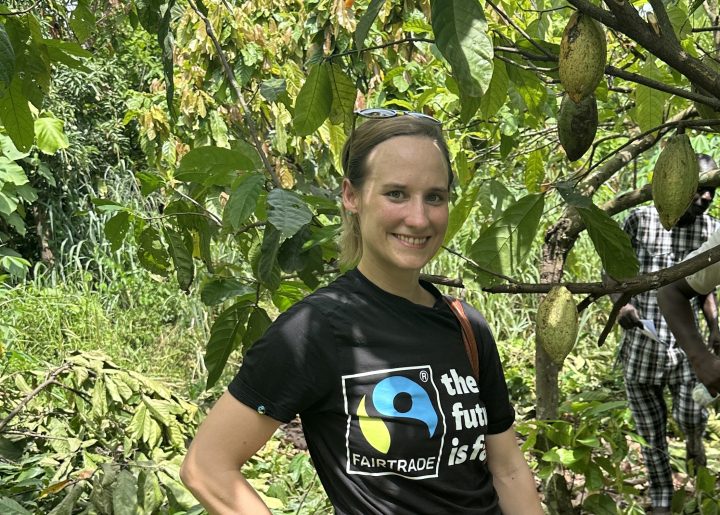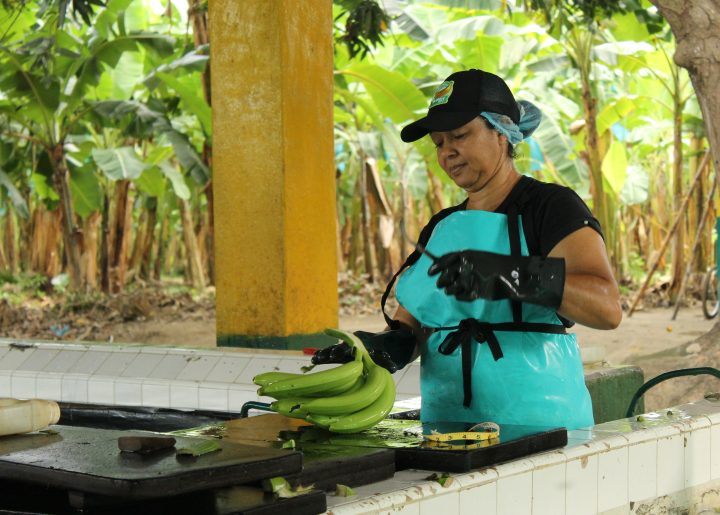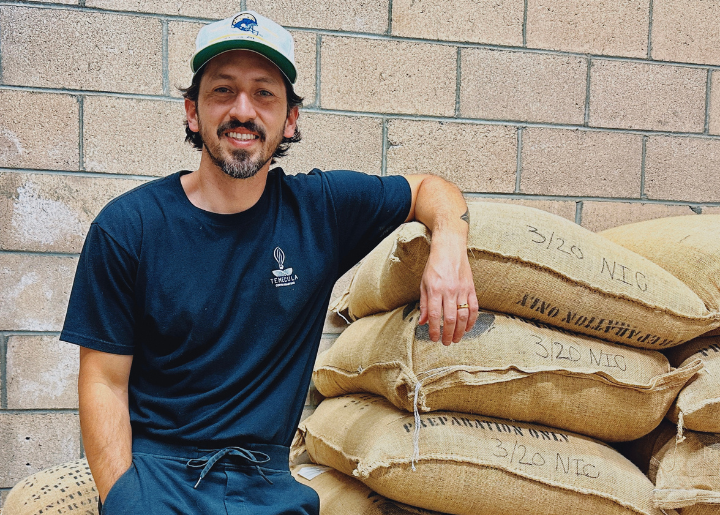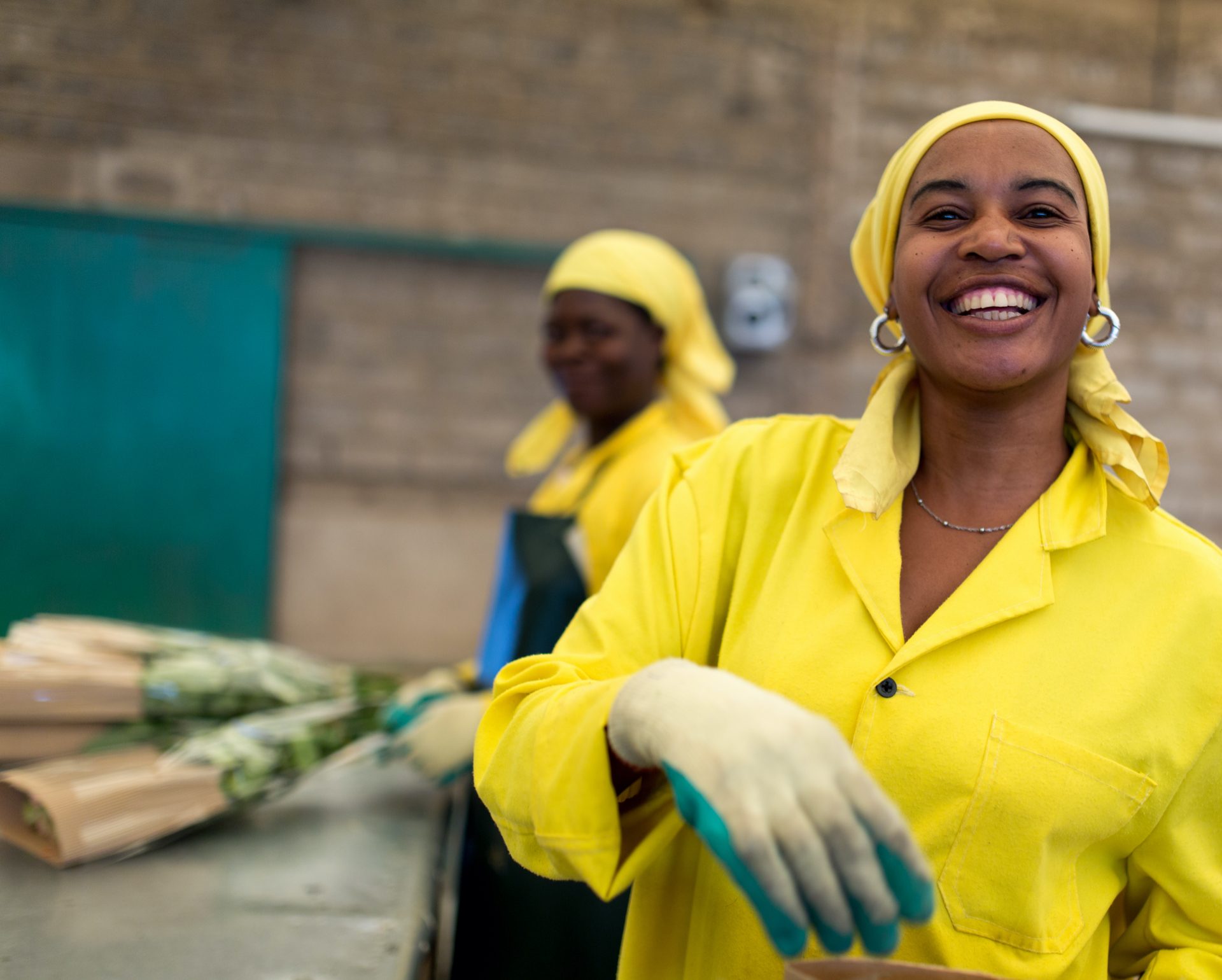Wages for Banana Workers in Ecuador and Colombia
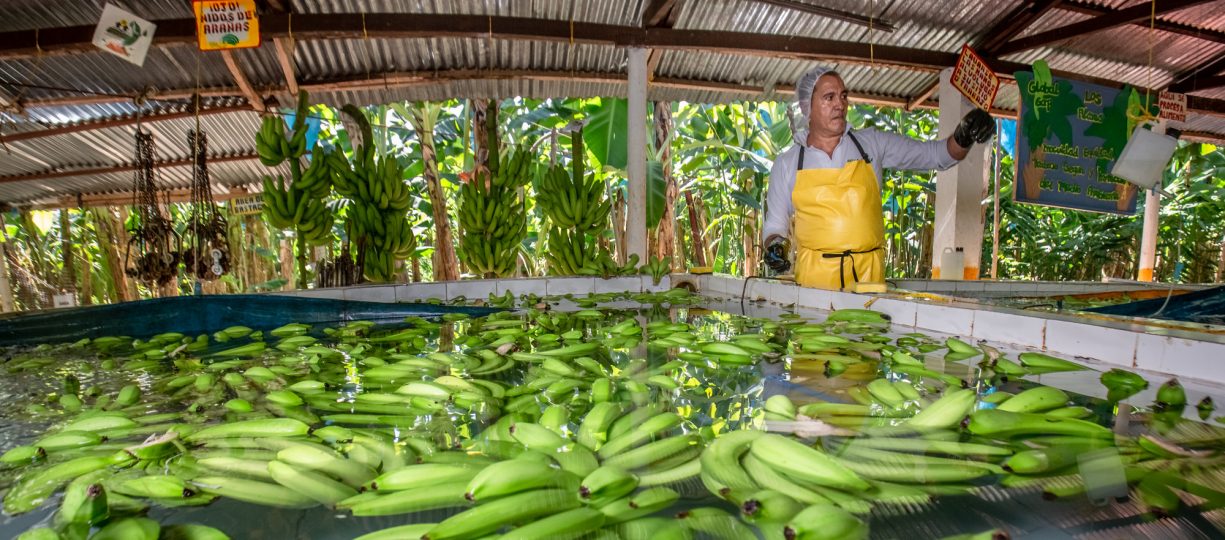
In the week of the Living Wage and Living Income Conference, ‘The Only Way is Up’, Fairtrade recognizes the crucial role of governments, unions and employers towards improving living conditions for workers. Following years of engaging and advocating for decent salaries, Fairtrade is delighted to see progress in the banana sectors and will continue to support these efforts in all banana producing countries.
Colombia and Ecuador lead the way
In Ecuador, the salario digno has been established by the government to ensure a just remuneration for workers and reduce poverty. All plantation workers, including those with the lowest salaries, receive at least the salario digno – a decent wage of $444.62 per month, which is higher than the country’s minimum wage. Preliminary data shows that, on Fairtrade certified plantations, the lowest paid employee receives $570, plus an average premium of US$31 to contribute toward collective projects.
In the case of Colombia, strong collaboration between trade unions and plantation owners has played an important role in reaching collective bargaining agreements to increase salaries. In September 2019, SINTRAINAGRO, the Colombia’s banana workers’ union, and AUGURA, the employers’ association, which represents the majority of bananas grown for export in Colombia, signed a new agreement to increase salaries by a further 5.5 percent. This increase also comes on top of a negotiated wage rate that exceeds the current minimum wage in the country.
“The cases of Ecuador and Colombia demonstrate the crucial role that governments, trade unions and employers play in ensuring decent wages can be paid, not just now but in the long-term. Without government regulation, proper enforcement and collective bargaining, it impossible to achieve this. Fairtrade’s role is to actively support and complement their efforts by seeing to it that workers can exercise their fundamental rights and freedoms in certified plantations. Also, workers tell us that Fairtrade Premium makes a real difference on top of their wages. Besides that, we advocate for more commitment to the Fairtrade Minimum Price from all other actors in the supply chain, right up to the retailers,” explains Wilbert Flinterman, Senior Advisor Workers’ Rights and Trade Union Relations at Fairtrade International.
Sustainable pricing and Fairtrade Premium are key.
Fairtrade supports companies by ensuring a stable income for their bananas through the payment of a Fairtrade Minimum Price. In addition, for each box of Fairtrade bananas sold, the workers on Fairtrade certified plantations receive Premium funds which can be used to supplement the basic needs that are part of improved living conditions. For example, employees and their families have access to free education, but using the Fairtrade Premium they can pay for necessary school supplies such as uniforms, shoes and backpacks, and transport to and from school. Employees can access local health care, but the Premium allows them to bypass long waiting times, purchase good quality care and have access to maternal health services, dentists, and emergency care, for example.
“Employees and plantation owners need each other; we are a team,” says Esteban Subia, owner of the Fairtrade certified banana plantation Finca El Remanso in Ecuador. “Employees can decide on how to use the Fairtrade Premium money. It took them a while to get used to, but after a year we have already seen a difference: better food, better education, more children in further education and personal development of employees. That is also important for me as the owner. My staff are so motivated and they never let me down.”
The way forward: Fairtrade efforts to reach living wages in all Fairtrade banana origins
A living wage is a benchmark for the minimum pay that employees receive for a standard working week that allows them to enjoy a decent standard of living. It is a wage from which adequate and nutritious food, decent housing, clothing, education, health care, transport and a small buffer for unforeseen expenses can be paid. Local actors in Ecuador and Colombia have made great strides towards paying their workers a decent wage, and Fairtrade seeks to affirm their accomplishments with living wage benchmarks that demonstrate a concerted effort to alleviating poverty in the banana sectors in those countries.
However, other banana producing countries still have a long way to go. In some countries, legal minimum wage levels are inadequate for workers to meet their essential needs. Fairtrade is prioritizing work in banana-producing countries where living wage benchmarks have shown this gap to be significant.
In addition, Fairtrade is also ramping up its work with trade unions, plantations owners, governments, NGOs and other standard-setters to create the right conditions for paying a living wage. In several key Fairtrade banana origins such as the Dominican Republic, Ghana and Cameroon, Fairtrade is already helping to build bridges between workers, trade unions and employers.
Living wage conference
Along with organizations including the Ministry of Foreign Affairs of the Netherlands and the Sustainable Trade Initiative (IDH), Fairtrade is organizing the living wage and living income conference, ‘The Only Way is Up’, on 5-6 November in Rotterdam, the Netherlands. The conference is being attended by companies, NGOs and government representatives with the aim of jointly investigating what next steps can be taken towards payment of a living wage in different agricultural sectors such as bananas, coffee and cocoa.
Topics
We’re in this together
Fairtrade America partners with brands on the journey to certification and beyond. We can help with everything from finding a certified supply chain to marketing your newly certified product.
Get in Touch
